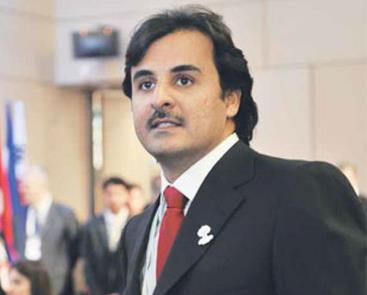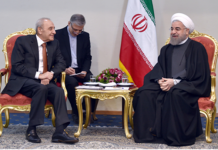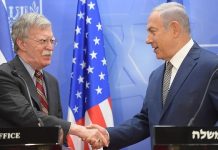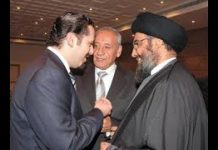لا هي كوبا ولا هو كاسترو
غسان شربل/الشرق الأوسط/08 حزيران/17
الدول الصغيرة تغريها الأدوار الكبيرة. تجد فيها نوعاً من الثأر مما تعتبره «ظلم الجغرافيا». تعتقد أحيانا أن الدور يوسع الخريطة ويحميها. وتستسلم لمتعة اللعب على ملاعب الآخرين. ومشكلة الأدوار الكبيرة أنها جذابة وكثيراً ما توقع في الإدمان. ومن الصعب إقناع المدمن بالعودة إلى دور يوازي حدود الخريطة. وفي الغالب لا بدَّ من العلاج بالصدمة. بديهي أن تسعى دولة ما إلى تعزيز دورها أو تلميعه، لكن المسألة تكمن في طبيعة الدور وما إذا كان يدخل ساحات الآخرين من بواباتها الرسمية والشرعية. التسرب إلى الساحات من دون علم الحكومات والإمساك بأوراق على أرض الآخرين وتحريكها والسعي إلى تغيير ملامح تلك الساحات أعمال مثيرة لكنها محفوفة بالأخطار. واستخدام تعبير الدول الصغيرة لا يتضمن أي إساءة. إنه وصف لواقع. وأنا أصلا من دولة صغيرة وهشة في آن.
كانت الأدوار الكبيرة سابقاً مرهونة بالثقل السكاني وحجم الجيش والموقع الجغرافي وعوامل أخرى. في العقود الأخيرة اختلفت بعض الحسابات. صار باستطاعتك حجز دور إذا امتلكت القوة الناعمة، كأن يكون لديك إعلام يصل إلى الآخرين ويؤثر فيهم، إضافة إلى عائدات كبيرة من الغاز والنفط. فتحت تجربة جمال عبد الناصر شهيّة عدد من الحكام لبناء زعامة عابرة للحدود ومحاولة تغيير ملامح الإقليم. تجربة صدام حسين معروفة النتائج. ليبيا بدورها دفعت باهظاً ثمن ولع معمر القذافي بأدوار تفوق قدرة بلاده على هضمها أو احتمال تبعاتها.
كي تكون مؤثراً في ملاعب الآخرين لا بدّ لك من الانخراط فيها. اجتذاب حكام أو أحزاب أو منظمات. وامتلاك أوراق تؤهلك لتكون مرة وسيطاً وأخرى معرقلا. وقد تتيح هشاشة بعض الدول للاعب الخارجي أن يتحول في بعض المراحل ممراً إلزامياً لبلورة هدنة أو إطلاق مخطوفين أو استرضاء متطرفين. في عالم المعسكرين لعبت جزيرة صغيرة اسمها كوبا دوراً كبيراً وخطراً. كادت تتسبب في مواجهة أميركية – سوفياتية إبان أزمة الصواريخ الكوبية. انتهت الأزمة بتسوية ضمنت سحب الصواريخ السوفياتية من كوبا في مقابل تعهد أميركا بعدم إسقاط نظام فيديل كاسترو. بقيت كوبا على امتداد عقود شوكة في خاصرة العملاق الأميركي. وأدمن كاسترو مهمة إضرام النار في الرداء الأميركي ودعم الثورات والانتفاضات من أميركا اللاتينية إلى أفريقيا. لكن كاسترو عاد إلى الجزيرة وانهمك بهاجس البقاء داخل الخريطة بعدما انفجر الاتحاد السوفياتي وتبدد. القذافي أيضا انكفأ إلى حدود الخريطة محاصراً بعدما وصل في سياسة إضرام النار إلى حد ارتكاب تفجير لوكربي.
متكئة على «الجزيرة» والعائدات، وقعت القيادة القطرية في إغراء الدور الكبير. يمكن القول إنها ذهبت بعيداً وأفرطت. راودتها أحيانا أحلام انقلابية ورغبة في تقليم أدوار تاريخية في الإقليم. لقد سمعنا لسنوات عن المثلث السوري – القطري – التركي بديلاً للمثلث السوري – السعودي – المصري. هذه المغامرة ليست بسيطة لمن يعرف ركائز الأدوار التاريخية في الإقليم والأحجام الراسخة لبعض الدول. رأينا الدور القطري أيضاً في رعاية «اتفاق الدوحة» بين اللبنانيين الذين كانوا يعيشون في ظل سلام وفره لهم «اتفاق الطائف». رأيناه أيضا في عملية ضغط غير مسبوقة على السلطة الفلسطينية لضمان موقع «حماس» وحصتها. وصل هذا الدور إلى حد التفرد في توفير منصة إعلامية لأشرطة أسامة بن لادن في منطقة مكتظة بمشاعر الإحباط، فضلا عن الفقر والبطالة وأثقال التاريخ.
مع اندلاع «الربيع العربي» ذهبت القيادة القطرية أبعد في محاولة تغيير المنطقة. ظهرت بصمات هذا الدور جلية في ساحات متعددة. في مصر وليبيا وسوريا واليمن. راهنت قطر بوضوح على الربيع الإخواني وتمسكت بهذا الرهان حتى بعد اصطدامه بصخور الواقع في أكثر من مكان. الرغبة في امتلاك القدرة على التحدث إلى الجميع جعلت الدور القطري حاضناً لكل المتناقضات التي تمتد من قاعدة أميركية إلى علاقات مع تنظيمات مدرجة على لوائح الإرهاب. أضعف الدور القطري أهل الاعتدال في أكثر من ساحة ومكان في دول «الربيع العربي». اتسمت بعض حلقات هذا الدور بكيدية واضحة ضد الدورين السعودي والمصري. في حرصها على دعم المعارضات في الدول الخليجية وخارجها بدت القيادة القطرية متمسكة بسياسة إضرام النار في رداء جيرانها.
أثار الدور القطري القلق وأثار الأسئلة. هل يحق لدولة مثل قطر أن تستخدم قوتها الناعمة لمعاقبة الوضع الحالي في مصر؟ وهل يحق لها تغليب فريق ليبي على آخر؟ وتغليب فريق فلسطيني على آخر؟ تحولت سياسة التدخلات القطرية سياسة لزعزعة الاستقرار في المنطقة التي تشهد أيضا هجوماً إيرانياً واسعاً وتمزقاً مذهبياً غير مسبوق. تجاوز دور قطر قدرة جيرانها على الاحتمال. لا تستطيع البقاء عضواً طبيعياً في مجلس التعاون وتستمر في الوقت نفسه في لعب دور كوبا القديم. كل ما يطلبه من اتخذوا الإجراءات الأخيرة ضدها هو أن تعود دولة طبيعية بدور طبيعي، أي أن تشبه كوبا التي عادت إلى خريطتها بدل التعلق بكوبا فيديل كاسترو، التي كانت تضرم الحرائق داخل خرائط الآخرين.
Qatar Isn’t Castro’s Cuba
Ghassan Charbel/ASharq Al Awsat/June 08/17
Countries with modest geographic stretch often are tempted by large-scale roles—the small country syndrome, whereby investing in rogue policy comes to compensate for what has been denied by limited territory. Sooner or later, these countries cave into temptation found in playing dangerous strings affecting neighboring states, believing that doing so buys them more security or larger cut in regional politics.
Normally, countries are always engaged in enhancing and polishing the roles they play in larger arenas, but it is conditioned that engagement is made with transparency and through over-the-table legitimate interactions. Taking backdoors and mobilizing unwritten policy to reform the general status quo is an approach fraught with danger and is genuinely frowned upon.
‘Small’ here is by no means used for derogatory purposes. It merely reflects facts dictated by geography. I myself happen to be a national from a country, Lebanon, which is small and fragile at the same time.
Over time, massive role-playing which once was decided based on population densities, army size, location changed. Any country which can secure strategic influence or what is known as ‘soft power,’ a heard media platform and hefty income from rich resources can easily book itself a starring role in regional politics. Egypt’s second President Gamal Abdel Nasser led a legacy on defying borders in the name of pan-Arab unity, in hopes of redrawing regional contours. Such history had opened up the doors for many rulers to strive for hegemony.
The Nasser experience has inspired the likes of Iraq’s Saddam Hussein and Libya’s Muammar Gaddafi. It remains to be said that Libya had paid highly for Gaddafi’s obsession with biting off more than what his country can chew.
But to weigh in different political playgrounds and countries, you first need to get involved. Swaying rulers, legal parties or organizations is crucial in outlining a country’s ability to mediate for or impede change. Some countries have been pushed to a fragile breaking point so much that foreign players are an unavoidable touchstone to push for a truce, manage a hostage situation or even establish an understanding with extremists. In the Cold War, a small nation dotted with tobacco fields called Cuba filled in as a catalyst for US-Soviet confrontation, which would had been a devastating military standoff to say the least.
What came to be known as the Cuban Missile Crisis later ended by the US ensuring that the regime of Fidel Castro will no longer be challenged in exchange for Cuba uninstalling nuclear-armed Soviet missiles. For years, Uncle Sam did not get over what happened in Cuba. Supporting anti-US uprisings and revolutions in Latin America and Africa, Castro was increasingly fixated on doing anything to trouble the US.
But Castro’s long journey ended as he returned to the ‘small country complex’ after the Soviet Union collapsed in 1991. Same could be said on Libya’s notorious dictator, Gaddafi—the mad-driven policy of the Libyan leader was so far committed that he ordered the Lockerbie bombing which killed 243 passengers and 16 crew members in Scotland.
Nestled on the Arabian Peninsula’s northeastern coast, gas-rich Qatar had fallen for the bait of political pre-eminence and gone to extremes. Having rebellious dreams, it began to feed its desire to reshape regional politics.
For years on, we heard rumors of a Syria-Qatar-Turkey axe replacing the Syria-Saudi-Egypt axe, but such a venture is far too volatile and risky for it to carry the day — excerpts of historical roles played by each country in the region can aid in clarifying that ambiguity.
Qatar’s regional role can be understood through the ‘Doha Agreement,’ which mediated for a political crisis in Lebanon after Hezbollah militants invaded and took control of western Beirut, weighing in on the Palestinian Authority to ensure Hamas’ slice of the cake, and its state-funded Al Jazeera media company broadcasting videotapes for al Qaeda leader Osama bin Laden.
The messages for Osama were aired at the wrong time and place, with poverty, public frustration, unemployment, and ancient hatreds. Then came Arab Spring uprisings during which Qatari leadership dived deeper into its attempt at changing the region. Doha’s fingerprints found all over the conflict map, whether it be in Egypt, Libya, Syria and Yemen. Qatar had clearly bet on the Muslim Brotherhood (MB) rise to power in the Egyptian version of the Arab Spring uprisings. Not only that, but it refused to cut its losses when it was clear that a MB agenda and reality are to different things.
In its desire to establish communication channels with everyone, Qatar fell victim to a vicious paradox of hosting a US air base while nurturing ties with blacklisted terror groups. The chance of moderate mindsets prevailing was slashed by Qatar’s approach in Arab Spring countries.
It is safe to say that Qatar’s approach largely targeted Saudi and Egyptian roles, especially that Doha chose to support anti-gulf opposition whether it be home-grown or foreign. Doha’s animosity is evident in its persistent attempts to burn its neighbor’s fences down. The method to Qatar’s madness raised many questions. Is it Doha’s right to exploit strategic influence to punish Egyptians for determining their fate? Is it right that Doha gets to choose what warring party in Libya retains the upper-hand over the other? Or for it to give an advantage to one Palestinian party? It is also worth considering that grievances of Qatar’s destabilizing interferences come at a time when Iran –without hesitation- endeavors on ripping the region apart with unprecedented sectarian strife.
Neighbor states of Qatar have had their fill of its presumptuous policy. This peninsula state can no longer play an efficient and positive role in the six-state Gulf Cooperation Council so long that it is chasing Cuba-styled dreams. It remains to say that all what Arab states boycotting Qatar demand is that it falls back in line with its natural role, for it to reflect Cuba which fit its geographic mold, and not Castro’s rogue Cuba.























